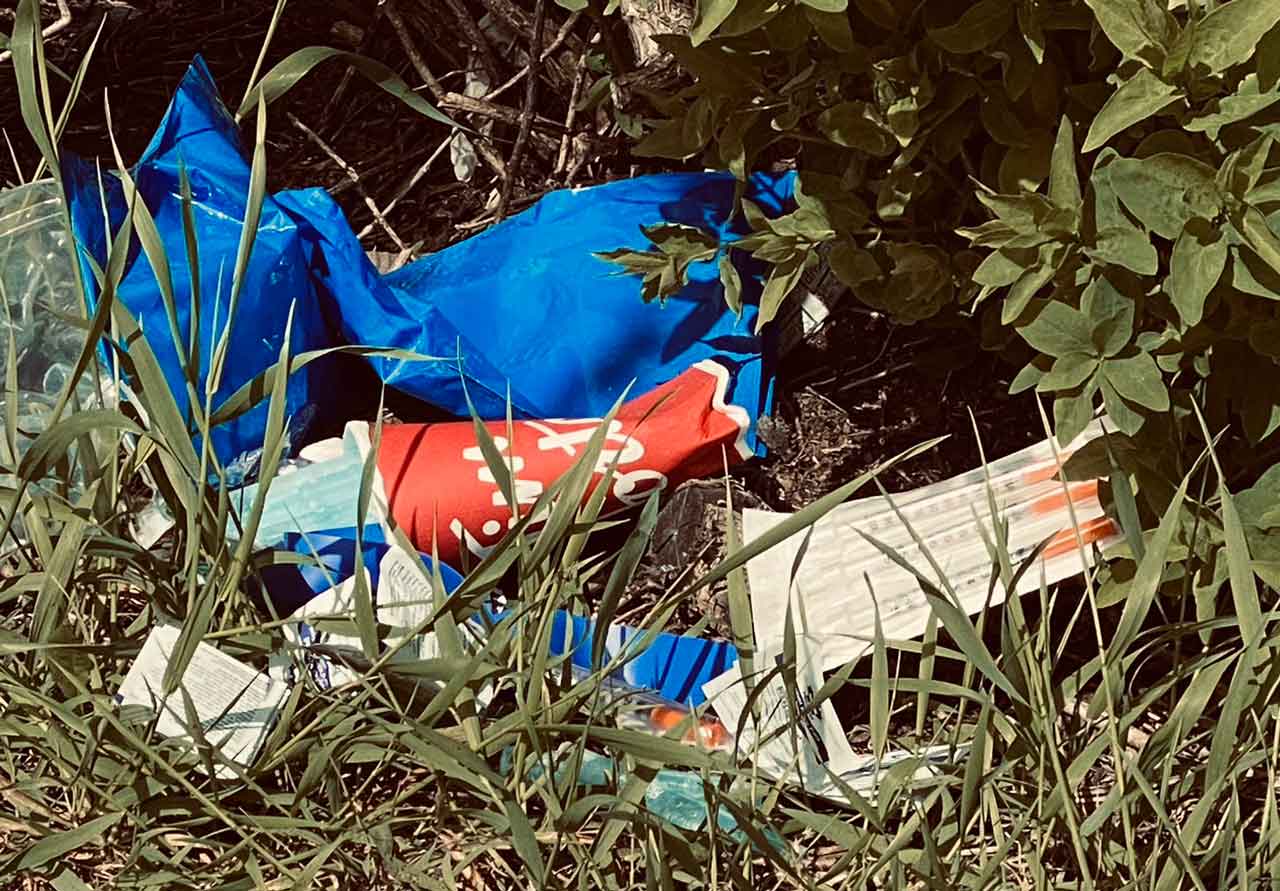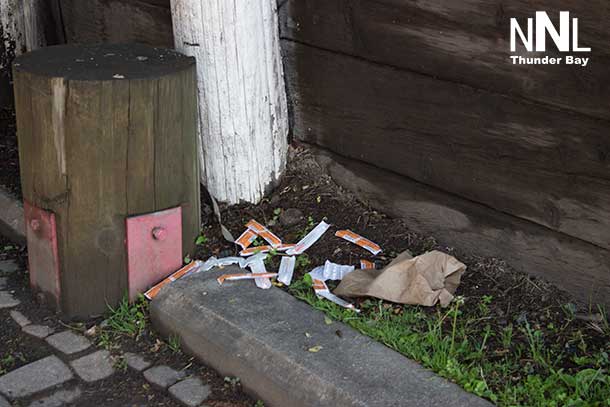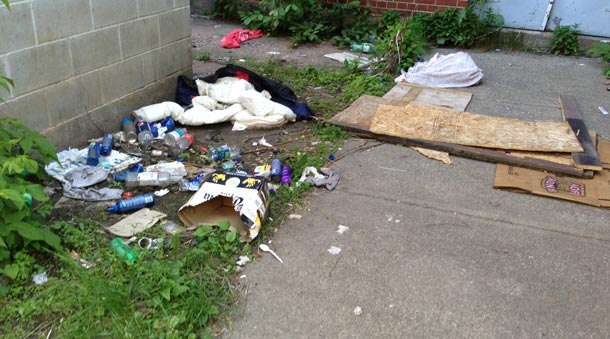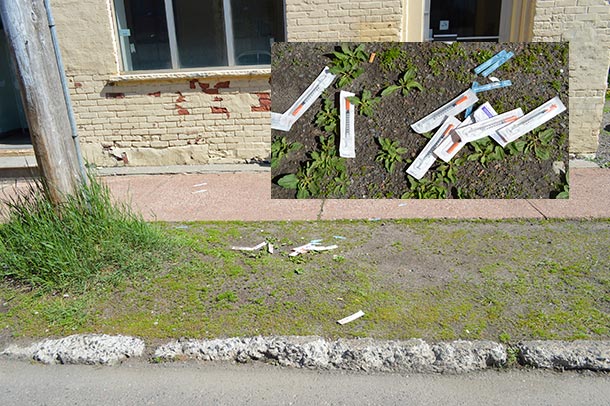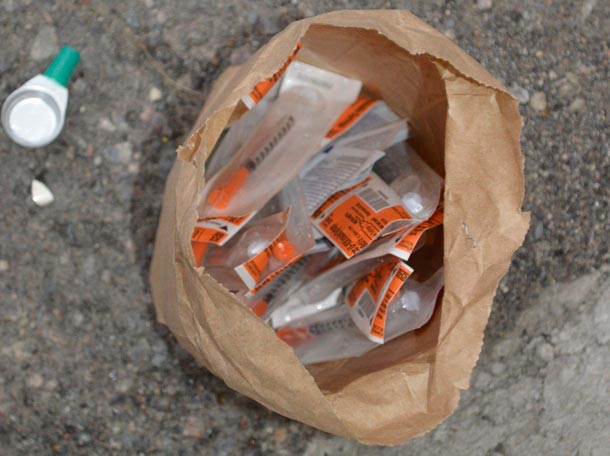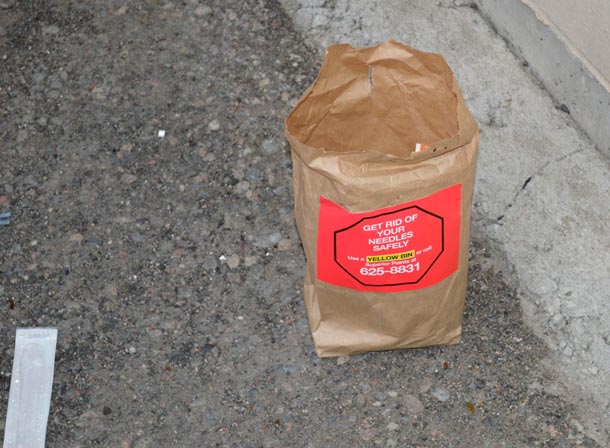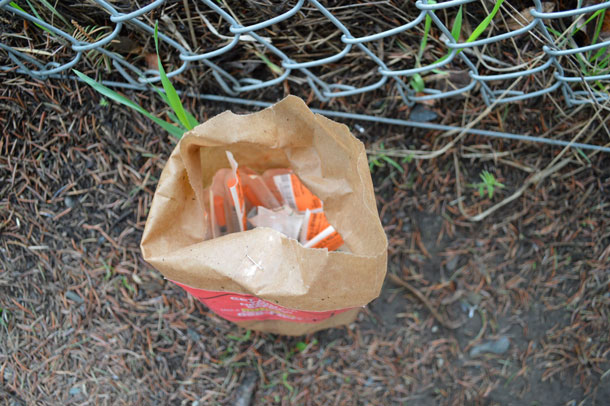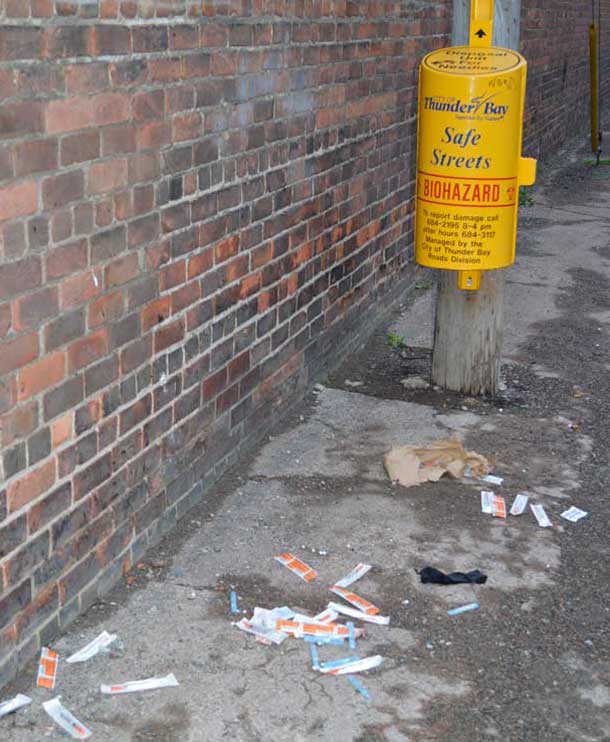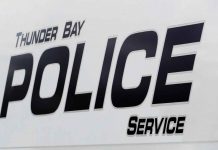Would Decriminalization of Drugs Work in Thunder Bay?
THUNDER BAY – There is an ongoing debate across Canada regarding dealing with the opioid crisis. Thunder Bay has serious problems with illegal drugs, and Ontario’s highest level of overdoses from illegal drugs.
Across the city one of the signs of the growing issue of illegal drugs is the number of needles left discarded by drug users. Another sign are the growing numbers of drug raids and drug arrests in the city by Thunder Bay Police. Finally there is the growing level of violence in Thunder Bay which police state is in relation to the drug trade in the city.
Thunder Bay has serious problems with drugs. Drug gangs from Southern Ontario have hit the city with their scourge of illegal drugs, bringing a new level of violence to our streets. There have been four homicides in Thunder Bay over the past six weeks.
Police have been hard pressed to handle all the issues surrounding illegal drugs. What isn’t being explored is by eliminating penalties, what impact that will have on the illegal sales of drugs in communities.
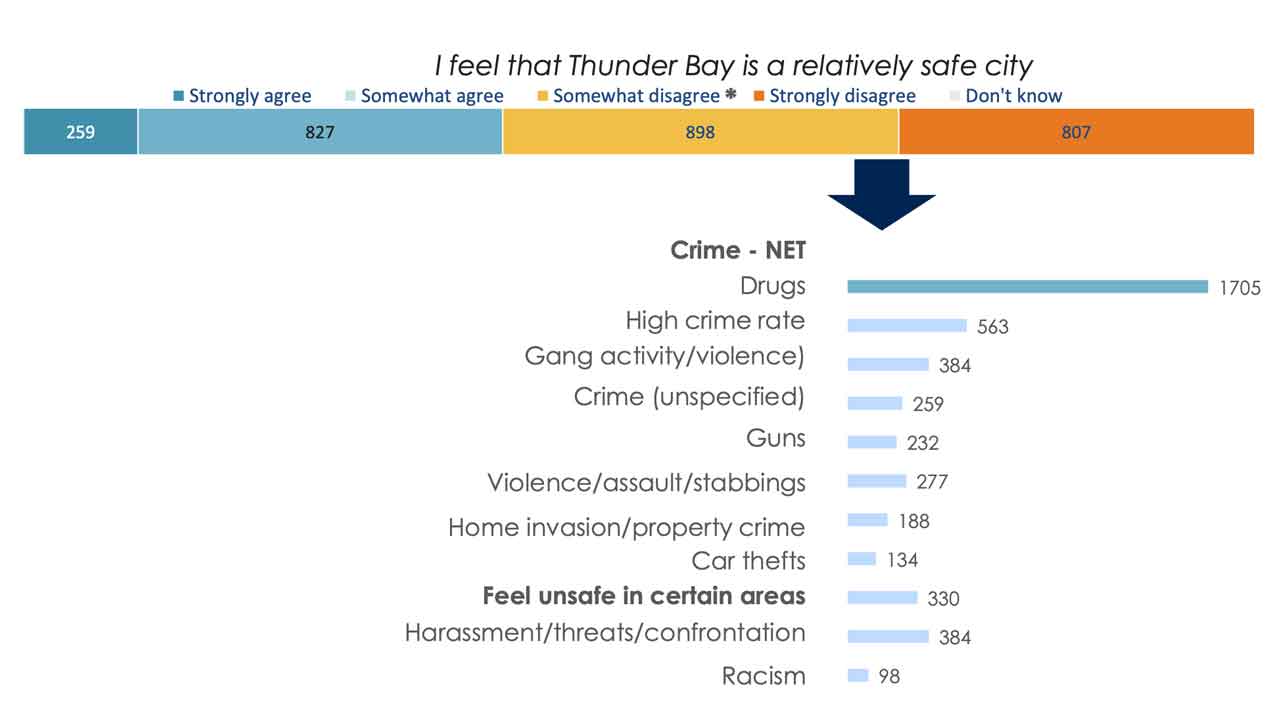
A growing number of people in Thunder Bay are frustrated over the level of crime in the city and in an online portion of the 2022 Citizen Satisfaction Survey, drugs were the top item noted.
British Columbia and Canada have agreed to a program of decriminalization of drugs which will run for three years from January 2023 to January 2026.
What is not discussed in that plan are harsher measures for drug dealers and sellers.
If all that is done is not charging people for small amounts of illicit drugs for personal use, and police put in the position of seeking to advise users to seek help, it is hard to understand what the long-term impact of that policy will be. There appears less interest in setting a goal of reduction of illegal drug use, simply to reduce the stigma for addicts.
What is apparent over the past several years, are growing numbers of discarded syringes in Thunder Bay. In many cases, significant numbers of unused needles from the kits handed out to addicts end up discarded all over the city.
In British Columbia, the province has been at the frontlines of the drug crisis in Canada. Working with the Liberal Government the province has moved to decriminalize the possession of small quantities of certain illicit substances.
“The shocking number of lives lost to the overdose crisis requires bold actions and significant policy change. I have thoroughly reviewed and carefully considered both the public health and public safety impacts of this request,” says Carolyn Bennett, federal Minister of Mental Health and Addictions and Associate Minister of Health. “Eliminating criminal penalties for those carrying small amounts of illicit drugs for personal use will reduce stigma and harm and provide another tool for British Columbia to end the overdose crisis.”
Vancouver Mayor Kennedy Stewart said, “Decriminalizing possession of drugs is a historic, brave and groundbreaking step in the fight to save lives from the poisoned drug crisis. Today marks a fundamental rethinking of drug policy that favours health care over handcuffs, and I could not be more proud of the leadership shown here by the governments of Canada and British Columbia.”
Donald MacPherson, executive director of the Canadian Drug Policy Coalition says, “I think it’s unconscionable. How many times do I have to say it? We’re in the middle of the worst drug toxicity crisis the country has ever seen, and decriminalization is seen as one of the valuable tools that we could use to help people reduce their risk of death.”
The CDPC says, “The fact that Canada is not considering national action towards decriminalization is shameful at this juncture, particularly as three jurisdictions have already applied for exemptions to date. The piecemeal approach the Government of Canada is now clearly taking does not adequately address the urgency of the drug poisoning crisis in this country.”
British Columbia says that the province is taking a critical step toward reducing the shame and fear associated with substance use as the federal Minister of Mental Health and Addictions and Associate Minister of Health announced the granting of a three-year exemption under the Controlled Drugs and Substances Act (CDSA) to remove criminal penalties for people who possess a small amount of certain illicit substances for personal use.
This exemption will be in effect from Jan. 31, 2023, to Jan. 31, 2026, throughout British Columbia.
The Province will work with a broad range of partners to implement this policy change, including the federal government, health authorities, law enforcement, people with lived and living experience, Indigenous partners and community organizations to establish the public health and public safety indicators in order to monitor and evaluate the outcomes of this exemption in real time.
This exemption, according to British Columbia is not legalization.
The province, in a media release says, “These substances will remain illegal, but adults who have 2.5 grams or less of the certain illicit substances for personal use will no longer be arrested, charged or have their drugs seized. Instead, police will offer information on available health and social supports and will help with referrals when requested”.
“Substance use is a public health issue, not a criminal one,” says Sheila Malcolmson, B.C.’s Minister of Mental Health and Addictions. “By decriminalizing people who use drugs, we will break down the stigma that stops people from accessing life-saving support and services.”
Over the past five years, British Columbia and the federal government have been building a continuum of care for mental health and substance use for people throughout the province and Canada. Increasing access to harm-reduction programs, such as safe consumption sites, safer supply and naloxone have been essential in saving lives. Implementing this exemption and reducing stigma around drug use is a vital part of the work toward decreasing barriers to this critical system of care.
“This exemption is a vital step to keeping people alive and help connect them with the health and social support they need,” said Dr. Bonnie Henry, B.C.’s provincial health officer. “By removing the fear and shame of drug use, we will be able to remove barriers that prevent people from accessing harm reduction services and treatment programs.”
Perhaps the question should be how to prevent people from getting addicted in the first place?
Some of that appears missing from the picture as governments and community partners seek to reduce the stigma around drug use, and provide in some cases not only safe injection sites along with in some cases plans to supply the drugs themselves.
While these measures will reduce engagement in the courts and jails, it is difficult to see how it will help people avoid the trap of addiction.
Here in Thunder Bay a number of years ago, the Citizen Survey put Youth Centres at the centre of the solutions to help young people. A pilot project – a public / private partnership was started – Youth Centres Thunder Bay in the Victoriaville Centre.
Since then, the pilot project ended. The City created a youth centre near Limbrick, but overall has left the issue on the shelf.
Citizens but realistically not government still see the need. Peter Panetta and the Underground Gym saw citizen donations to purchase a new building, renovate that building, donate a new bus, and work to try to help youth.
The Underground Gym serves a fairly small number of youth. It operates without government funding.
The investments by government have been in the new Court House and now into a new jail. The new Court House was expensive at almost $500 million, and the new jail will be north of $1.2 billion.
Thunder Bay Police Service was looking at a new Police Campus estimated at $56 million.
Deleted: Ontario has stepped up putting $4 million on the table for addiction treatment beds. This project would see 10 new addictions treatment beds and 4 new withdrawal management beds.
Looking around Thunder Bay one can see methadone treatment centres have become a growth industry. There are 13 methadone clinics in Thunder Bay, along with patients who get their ‘Drink’ at pharmacies and clinics.
Patients can end up tied to the methadone clinic for years. Experts say that for methadone treatment of a minimum of 12 months is considered the minimum.
NetNewsLedger has spoken to people who have been on methadone for five to seven years. The methadone simply becomes replacement of one drug for another. Is that really treatment? Or have methadone clinics simply zoned in on a market of clients to generate massive profits?
In 2014 the top ten per cent of the methadone prescribers in Ontario were billing the healthcare system for $650,000 each.
The process should be getting the patient stabilized on either methadone or Suboxone and then working on needed counselling. However experts are stating that isn’t happening.
Often the patient sees their doctor only by video screen. The patient submits urine tests to monitor any other drugs that they may be taking.
The doctor bills the Ontario Health Insurance Program for the appointments and urine tests. Each patient can represent thousands of dollars each to the doctor over the course of a year.
Sometimes it seems that the road out of addictions does not generate the funds that punishing the people addicted to drugs or alcohol receives.
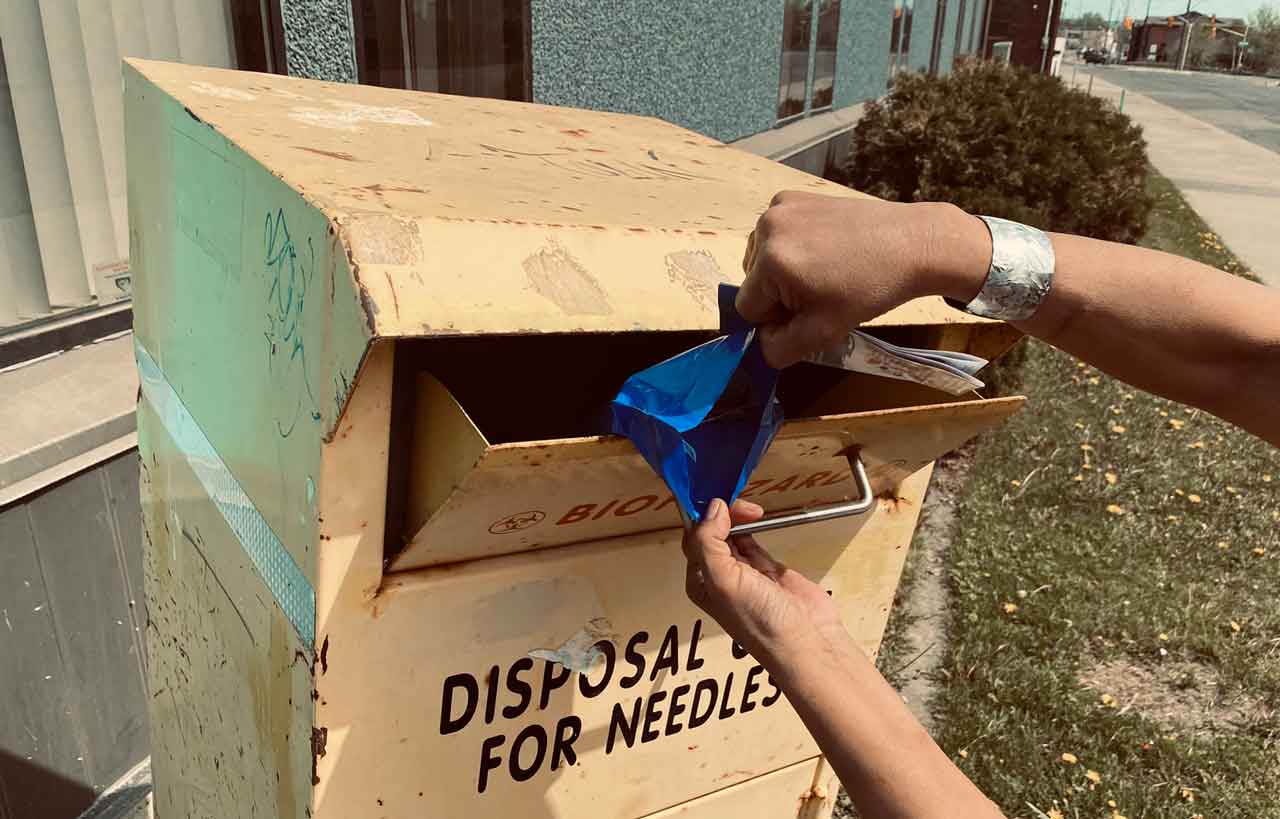
Drug Needle Disposal in Thunder Bay
If you find discarded syringes in the city, you can call Superior Points at (807) 621-7862.
Operating Hours for Superior Points is Monday to Friday from 11am to 4 pm and from 5 to 8 pm. They are closed on weekends.
Locations of Outdoor Needle Disposal Bins
- Alley 100 block of Simpson St. off Miles St.
- Alley 100 block of Bethune/Cumming Streets
- Royal Edward parking lot
- North End Kaministiqua Park
- Alley 100 block of North May St. off Victoria Ave.
- Wilson Park
- Dease St. (alley just off McKenzie St. (behind St. Luke’s Church))
- 288 Windsor shed next to Blucher
- Limbrick Place – 3rd Limbrick Shed, parking lot A
- Shelter House – 420 George St. – Mailbox style
- Corner of Brodie and Donald parking lot of St Andrews – Mailbox Style
- Corner of Simpson and Ogden Norwest CHC parking lot – Mailbox Style
- Kaministiqua Park close to the James Whalen Tug – Mailbox Style
- Thunder Bay District Health Unit parking lot – Mailbox Style
- Alley beside 510 Victoria Ave. East – Mailbox Style
- 102-106 Cumberland Street North – ElevateNWO – Mailbox Style


